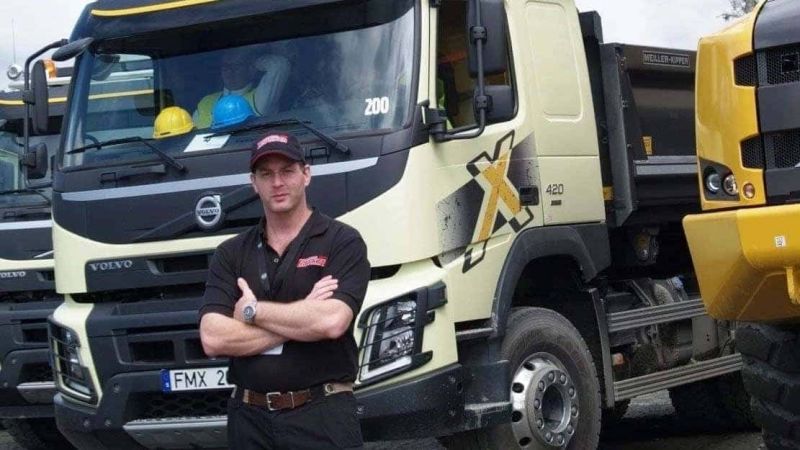Stefan's Column: The importance of trucks and drivers in the supply chain

A supply chain is a system of organizations, people, activities, information, and resources involved in moving a product or service from supplier to consumers. Supply chain activities transform natural resources, raw materials, and components into a finished product that is delivered to the end customer. In a sophisticated supply chain, used products may re-enter the system at any point where residual value is recyclable. Two key components are crucial for the smooth operation of any supply chain: trucks and drivers.
Connecting the chain links
As there are many links in a chain, there needs to be a connector. It is seldom the case that all parties who contribute to a supply chain would be direct neighbours and they simply send the goods across the street. Through the lifecycle of a product it goes through many stages, of which the commercial vehicle is a key component in moving it from raw material to the end user. Take a soft drink in a can as an example. The starting point is the extraction of the ore that will be turned into aluminium. In a pit, commercial vehicles excavate and transport rocks and boulders, send crushed material to the smelter. From a smelter, the aluminium will be transported in bulk to the next manufacturer: on a truck.
Once cans have been produced, they will be sent (in bulk again) on trucks to bottlers where the can will be filled with a drink. The filled cans are then transported to a central warehouse. From there, the journey goes on to the points of sale to the end user, mostly in smaller vehicles as they need to feed the small retailers.
In short: without trucks the entire chain comes to a grinding halt.
Dependability
Getting goods for processing from one place to another is crucial. Your warehouse may be top-notch and feature the latest in technology, but if your truck breaks down or you haven't got enough drivers, your goods aren't moving. Keeping trucks on the road and keeping them dependable is crucial for the success of the supply chain. In today's world trucks are the warehouses on wheels and there is seldom reserve stock that one can tap into. Just in time and just in sequence are good ways for manufacturers to reduce capital investment, but this shifts the burden to the truck operators.
Let's face it: trucks will break down. Truck operators have to take measures that ensure that broken down trucks will become mobile as quickly as possible while everyone in the supply chain has to look at ways to deal with delays and any eventualities.
Truck makers have realised that there is a tremendous emphasis on dependability and the design of a modern truck is built around this notion. There is even one truck brand that has this in its name: UD - Ultimate Dependability.
Where's me stuff?
Many branding projects have shown that pricing is seldom the deciding factor. Actually, pro-active problem notification and reliability are. The trucking industry can now rely on sophisticated tracking systems. With RFID technology one can now track individual lobsters in a shipment of seafood. Clients are typically given access to the tracking systems and can monitor exactly where the goods are. In cases of breakdowns (or hi-jacking) these systems provide multi-platform alerts. This in turn allows for the parties along a supply chain to take action to ensure that the overall process keeps flowing.
A responsible job
Modern trucks are sophisticated. So are supply chains. Drivers of commercial vehicles are doing more than just taking the wheel to ensure the truck stays on the road. Proper handling of customs documentation and responsible driving are just two key elements of the professional driver. Modern drivers also understand that their job is the one that keeps a supply chain moving. Timely delivery is not a luxury, but a must and a professional driver will make this a priority.
These days truck drivers are, in many cases, the front line for many companies. They are the ones that face the customers when collecting or delivering goods. The way they behave on the roads also reflects on their company’s brand image. One interesting aspect is that many trucks with company livery don't actually belong to the brand, but are merely painted in the corporate colours of a client. As a manager of a supply chain one also has to manage the way these drivers behave as it reflects on the brand itself.
Driver behaviour also has a huge impact on the environment. More and more companies are looking at reducing their carbon footprint. Highly trained truck drivers can reduce fuel consumption by up to 30 %. As Benoit Henry, Managing Director of Continental in Malaysia put it: "We all want goods in the supermarket. For that we need transportation, but we have to make every possible effort to reduce the impact on the environment.”
So, the next time a logistic company is asking for more money to be able to conduct driver training, one should not hesitate to provide support.